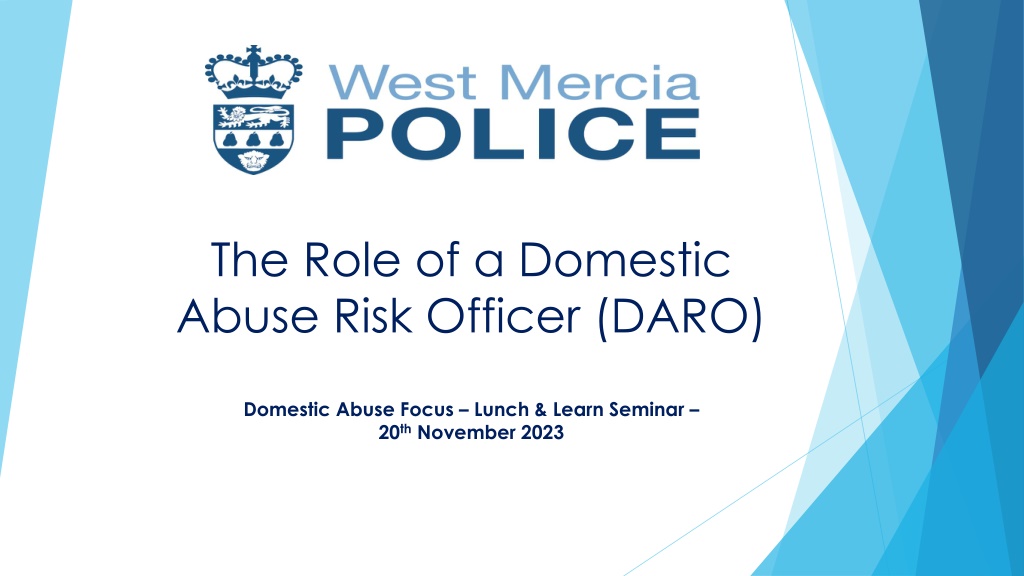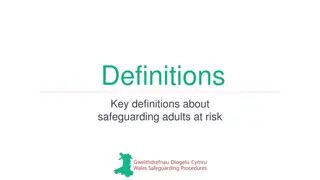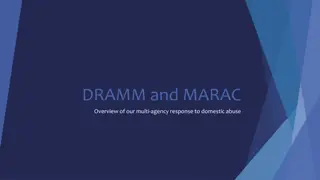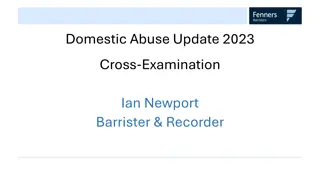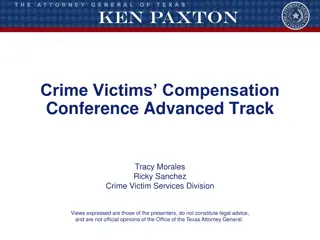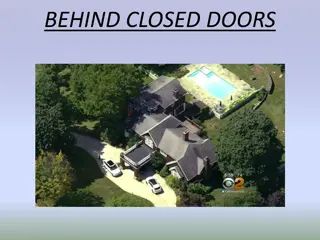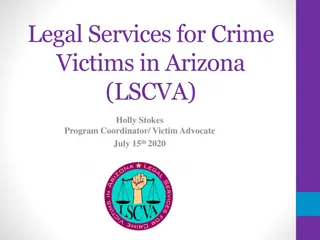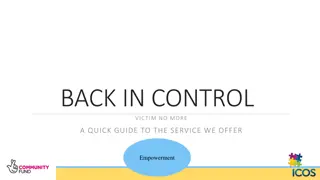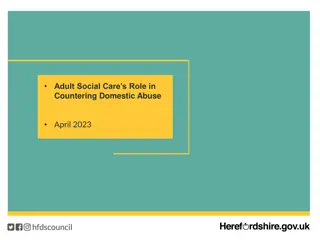Role of a Domestic Abuse Risk Officer (DARO) in Safeguarding Victims of Domestic Abuse
The Domestic Abuse Risk Officer (DARO) plays a critical role in safeguarding and supporting high-risk victims of domestic abuse and their families. They assess domestic incidents to determine risk levels, implement safeguarding measures, and work closely with partner agencies to ensure victims receive the necessary support and protection. The DARO also provides ongoing support, court updates, and assistance with legal processes, focusing on the safety and well-being of all victims.
Download Presentation

Please find below an Image/Link to download the presentation.
The content on the website is provided AS IS for your information and personal use only. It may not be sold, licensed, or shared on other websites without obtaining consent from the author. Download presentation by click this link. If you encounter any issues during the download, it is possible that the publisher has removed the file from their server.
E N D
Presentation Transcript
The Role of a Domestic Abuse Risk Officer (DARO) Domestic Abuse Focus Lunch & Learn Seminar 20th November 2023
Telford & Wrekin LPA DAROs Louise Armstrong 01952 214768 Natasha Davies 01952 214710 Jess Willets 01952 214945 *Stu Platt TBC!* C/O Protecting Vulnerable People (PVP) West Mercia Police, Malinsgate Police Station, Telford TF3 4HW
Role & Responsibilities.. The DARO role is to safeguard and support High Risk victims of domestic abuse and their children/family. Each domestic incident where a Police Officer has attended will be graded Standard, Medium or High depending on information provided within the DARA, their professional judgement and information held on Police systems. It is then the job of the DARO to complete a further risk assessment for the High- Risk victims. Police systems will be fully checked, and contact will be made with the victim / visited, where more information will be gathered re their situations and the incident and then relevant safeguarding measures will be implemented to try and prevent further incidents / keep them safe.
Safeguarding Measures Gaz Warning on Police systems. Non-Molestation Order referral. Creation of a Risk Management Plans (RMP). Referral to MARAC. Advice to the victim around safeguarding Apps such as Hollie Guard and Bright Sky. Advice to the victim around their personal safety. Referrals to partner agencies such as Women s Aid, DAPP, Counselling Services, STARS, ISVAs, Housing support groups. To seek refuge accommodation for the victim and her children (on occasion DARO have transported victims with officers to the refuge). Arranging installation of national monitoring alarms, DOCO security referral, fire service referral. On occasions mobile phones are purchased with victims to enable them to have means to contact supporting agencies. Signposting victims and families to food banks and crisis support.
Role continued.. Although we mainly focus on High-Risk victims, we do also provide support for victims that have been assessed as Medium when officers will ask DARO to speak with the Victim to provide support and options available to them, which could also mean opening / reinstating Risk Management Plans. Ongoing support will also be provided to victims who are in the MARAC process and on Risk Management Plans. This will be provided via telephone conversations and on occasion, visits to their address. SNT Officers and DARO will liaise to ensure that the RMP is fully serviced. The victim will be updated by DARO with any Court outcomes and further safeguarding options will be considered if required. Victims may also ask DARO about court process, pre court visits etc. Officers may ask DARO to seek the victims views on restraining orders. The DARO works closely with partner agencies such as Social Services, Family Connect, Probation, Women s Aid, Cranstoun and any other agency, charity or third sector organisation relevant to the victim that is being supported. This is done via emails and regular telephone calls.
Rolecontinued... The DARO is often asked by Patrol officers to visit victims of domestic abuse who have failed to provide statements to try and encourage them to do so and to offer them support / safeguarding. Where possible DARO will also attempt to visit High Risk DV victim with the PVP officer dealing with arrest/investigation. The DARO will administer Claire s Law applications and complete disclosures. The DARO provides Officers within the PVP department and other departments any information that may assist with their investigation / contact with the victim.
Thank you for listening. Any questions? Detective Inspector 22712 Craig Newey craig.newey@westmercia.police.uk
